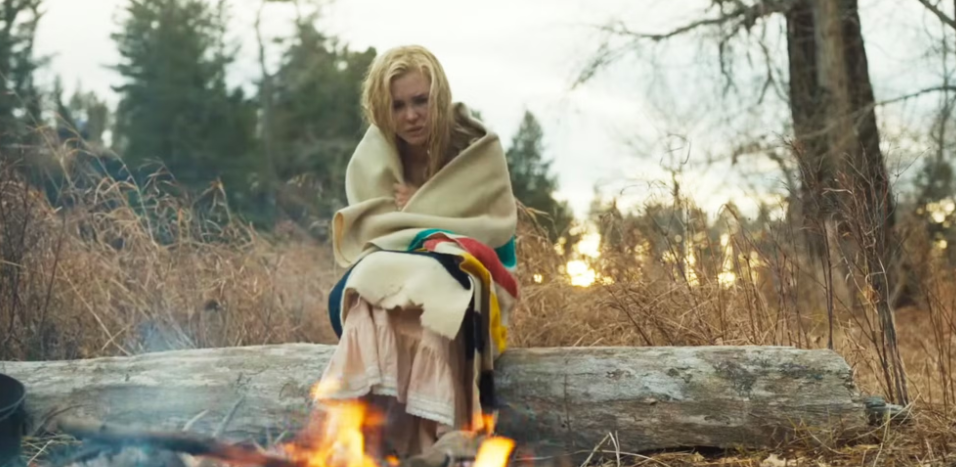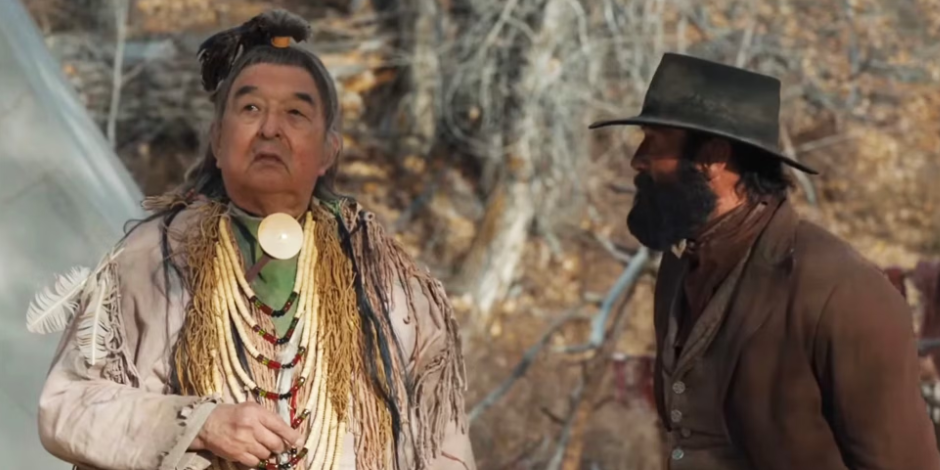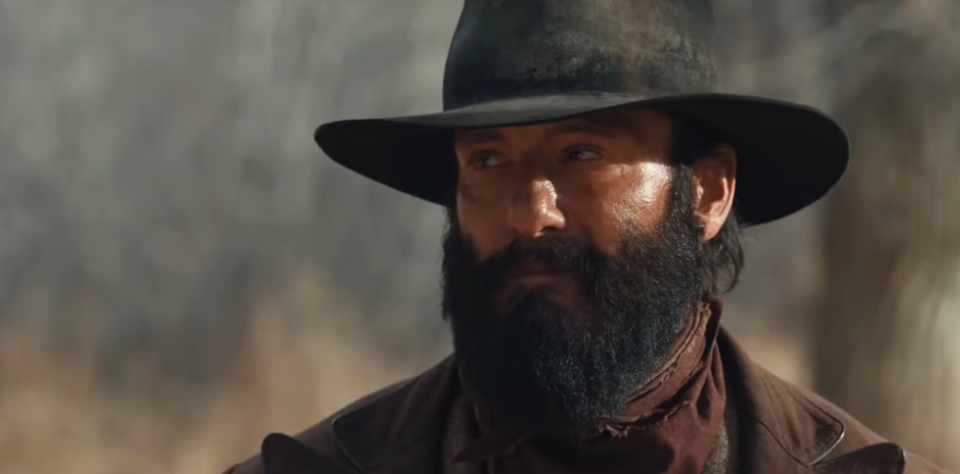Quick Summary
In Yellowstone Season 5, Kayce Dutton’s “counting coup” moment hints at the show’s inevitable conclusion, where legacy, justice, and land ownership take center stage. This act, deeply rooted in Native American tradition, symbolizes Kayce’s internal conflict and foreshadows the fulfillment of a prophecy made in 1883. As the seventh generation of the Dutton family, Kayce’s choices are pivotal in determining whether the Yellowstone Ranch will remain in the hands of the Duttons or return to the Broken Rock Tribe, in line with Spotted Eagle’s prophecy. This moment sets the stage for the series’ climax, exploring the complex relationships between the Duttons and Indigenous people, and the future of the land itself.
Introduction
Yellowstone has captivated audiences with its intense storytelling, rich characters, and deep exploration of family legacy and land ownership. Season 5, Episode 12, titled “Counting Coup,” takes the story to a pivotal moment as Kayce Dutton makes a chilling threat, further aligning his character with Native American traditions and bringing Taylor Sheridan’s prophecy for the Dutton Ranch closer to fruition.
This episode doesn’t just reveal Kayce’s internal conflicts but also ties back to a prophecy first introduced in the Yellowstone prequel, 1883. The prophecy, given by the Crow elder Spotted Eagle, foretells the eventual reclamation of the land by Indigenous people after seven generations of Dutton ownership. Kayce’s journey, marked by spiritual visions and his alignment with Native customs, hints that the series may end with this prophecy coming true.
But what does “counting coup” mean? Why is it significant? And how does it connect to the show’s overarching narrative? Let’s dive deep into the symbolism, history, and storytelling brilliance behind this moment.

What Does “Counting Coup” Mean in Native American Tradition?
The term “counting coup” originates from the Plains Native American tribes, where it described acts of bravery in battle. Instead of killing an enemy, a warrior would show ultimate courage by physically touching them—often with a coup stick—without harming them. This act demonstrated skill, fearlessness, and spiritual superiority over their adversaries.
The Symbolism of Counting Coup
- A Mark of Honor: Warriors who successfully counted coup were celebrated for their bravery, often earning higher status within their tribes.
- A Moral Victory: The act showed respect for life, as it avoided unnecessary bloodshed. It was about proving dominance without succumbing to violence.
- Spiritual Meaning: Counting coup was a way to channel inner strength and connect to a higher purpose, aligning the warrior with cultural and spiritual values.
In Yellowstone, Kayce Dutton’s use of this term while threatening Grant—a man who orchestrated his father’s death—is more than just an intimidation tactic. It signifies Kayce’s growing alignment with Native customs and his journey toward embracing his dual heritage.
Modern Interpretations of Counting Coup
Today, “counting coup” has transcended its historical roots and is often used metaphorically to describe acts of resilience, courage, or moral victories in various situations. For Kayce, the act is both literal and symbolic, signaling his evolving identity and his role in the Yellowstone Dutton family’s legacy.
How Kayce Dutton’s Character Reflects Two Worlds in Conflict
Kayce’s Journey Through Yellowstone
From the very beginning, Kayce Dutton’s life has been one of duality. As the youngest son of John Dutton, he grew up in the shadow of the powerful Dutton Ranch. Yet, his life took a different turn when he married Monica, a Native American woman from the Broken Rock Reservation.
In the first season, Kayce is estranged from his family, living on the reservation with Monica and their son, Tate. This sets the stage for his ongoing struggle between two identities:
- The Rancher: A son of the Yellowstone legacy, tied to his family’s land and traditions.
- The Protector: A husband and father prioritizing his immediate family and embracing their Indigenous heritage.
The Role of Native American Spirituality in Kayce’s Life
Kayce’s connection to Native spirituality deepens throughout the series. In Season 4, he undergoes a vision quest guided by Mo Brings Plenty, a trusted advisor to Thomas Rainwater. This pivotal moment shows Kayce embracing rituals and seeking answers about his future.
His visions reveal:
- A Fork in the Road: A choice between two paths—symbolizing his loyalties to the ranch and his family.
- A Warning: The visions hint at sacrifices he must make to protect what truly matters.
These spiritual experiences shape Kayce’s actions in Season 5, leading to his decision to prioritize Monica and Tate over the Dutton Ranch.
Kayce’s Internal Conflict Between Family and Ranch
Throughout the series, Kayce’s actions often reflect his struggle to reconcile these two worlds. In Season 5, his alignment with Native traditions becomes more evident, especially as he distances himself from the ranch’s violent legacy. His actions suggest a symbolic bridge between the Duttons and the Broken Rock Tribe, potentially paving the way for a resolution to the prophecy foretold in 1883.
The Prophecy From 1883: What It Means for Yellowstone’s Ending
What Did Spotted Eagle’s Prophecy Foretell?
In the final episode of 1883, Spotted Eagle, a Crow elder, delivers a prophecy to James Dutton. While showing him the valley where he can bury his daughter Elsa, Spotted Eagle warns James that in seven generations, the land will be reclaimed by his people.
This prophecy encapsulates themes of justice, land ownership, and the cyclical nature of history. It also establishes a direct link between 1883 and Yellowstone, hinting at how the Dutton family’s story will ultimately end.
Who Is the Seventh Generation in the Dutton Line?
According to the family tree, Tate Dutton represents the seventh generation of Dutton ranchers. As Kayce and Monica’s son, Tate is of mixed ancestry—both Dutton and Native American. This dual heritage makes him a key figure in fulfilling the prophecy, whether by inheriting the ranch or ceding it to the Broken Rock Tribe.
How the Prophecy Predicts the Ranch’s Future
There are two primary ways the prophecy could play out:
- Tate Takes Ownership: If the Duttons save the ranch and Tate inherits it, his Native ancestry could symbolically fulfill the prophecy by connecting the land back to Indigenous roots.
- The Tribe Reclaims the Land: Alternatively, the Broken Rock Tribe, led by Thomas Rainwater, could negotiate or seize ownership, directly fulfilling Spotted Eagle’s prediction.
This prophecy is more than a narrative device—it reflects real historical tensions over land ownership and justice, adding a layer of depth to Yellowstone’s themes.

How “Counting Coup” Foreshadows Yellowstone’s Conclusion
“Counting coup” isn’t just an act of defiance or bravery in Yellowstone; it’s a potent symbol that connects Kayce’s personal journey to the broader narrative arc of the series. By threatening Grant with the term in Season 5, Episode 12, Kayce aligns himself with the values and traditions of the Broken Rock Tribe. This act foreshadows a seismic shift in the story’s trajectory, potentially leading to the fulfillment of Spotted Eagle’s prophecy from 1883.
Key Ways “Counting Coup” Foreshadows the End:
- Kayce’s Alignment with Native Traditions: Through his spiritual connection and willingness to embrace Native customs, Kayce may become the bridge between the Dutton legacy and the Indigenous communities.
- A Turning Point for the Ranch: As Kayce distances himself from the Yellowstone Ranch’s violent history, it suggests a potential transfer of ownership or purpose.
- Tate as the Fulcrum: With Tate being the seventh generation of Duttons, his mixed ancestry makes him the embodiment of reconciliation between the two worlds, hinting at a transformative resolution for the ranch.
Ultimately, Kayce’s counting coup moment reflects his evolution into a character who embodies justice, honor, and the courage to break free from the destructive cycles of his family’s past.
The Broader Themes of Yellowstone: Legacy, Justice, and Land Ownership
At its heart, Yellowstone is a story about land—the power it holds, the lives it shapes, and the conflicts it ignites. The series masterfully weaves themes of legacy, justice, and ownership, using the Dutton Ranch as both a setting and a symbol.
Legacy: The Burden of the Dutton Name
The Dutton family’s legacy is steeped in blood, ambition, and sacrifice. John Dutton’s relentless pursuit to protect the ranch has come at great personal cost, as he’s battled both external threats and internal strife.
- Kayce’s Role in Legacy: Kayce represents a new chapter in the Dutton story—one that seeks to prioritize family over land.
- The Legacy’s Fragility: The prophecy suggests that despite generations of struggle, the Dutton legacy is not permanent.
Justice: A Reckoning with History
The series also explores justice, both personal and historical. Through characters like Thomas Rainwater and Angela Blue Thunder, Yellowstone highlights the injustices faced by Native communities and the complexities of reclaiming stolen land.
Land Ownership: A Cycle of Conflict
From the settlers in 1883 to the present-day battle for the Yellowstone Ranch, land ownership remains the central conflict. The prophecy suggests that the cycle is nearing its end, with the land returning to its original stewards.

Kayce’s Vision Quest in Season 4: How It Sets Up the Endgame
Kayce’s vision quest in Season 4 is a defining moment that foreshadows his ultimate decisions and the resolution of the series. Guided by Mo Brings Plenty, Kayce undergoes a sacred Native American ritual to seek clarity about his future.
Key Takeaways from the Vision Quest:
- The Fork in the Road: Kayce sees two paths, representing the difficult choices ahead. One path leads him deeper into the ranch’s violent legacy, while the other prioritizes his family’s well-being.
- Sacrifice and Loss: The visions hint at significant personal sacrifices, perhaps foreshadowing a loss that will force Kayce to relinquish the ranch.
- Spiritual Awakening: The quest cements Kayce’s connection to Native traditions, preparing him to embrace a role that bridges his dual heritage.
How It Shapes the Endgame:
Kayce’s visions are more than personal—they reflect the broader themes of the series, including reconciliation and justice. As the series progresses, his choices will likely determine whether the prophecy is fulfilled peacefully or through conflict.
Conclusion: The Symbolism of “Counting Coup” in Yellowstone
The act of “counting coup” is rich with meaning in the context of Yellowstone. For Kayce, it represents a turning point—a declaration of his commitment to justice and his alignment with Native values. For the series as a whole, it symbolizes the impending reckoning with the Dutton family’s legacy and the unresolved tensions over the land they’ve fought so hard to protect.
Taylor Sheridan’s Yellowstone isn’t just a tale of family drama; it’s a profound exploration of power, identity, and history. As the series edges closer to its conclusion, the threads of prophecy, spirituality, and legacy converge, promising an ending that is as poignant as it is inevitable.
The journey of the Duttons has been one of survival, but survival at what cost? As Kayce steps into his role as both a Dutton and a protector of Indigenous traditions, the series invites viewers to reflect on the meaning of legacy—and who ultimately has the right to claim it.
Frequently Asked Questions
What Does “Counting Coup” Mean in Native American Culture?
In Native American traditions, “counting coup” is a ceremonial act of bravery, often performed during warfare. Rather than killing their enemy, warriors would risk their lives to touch them with a coup stick or weapon, demonstrating courage and honor. In Yellowstone, this act is reinterpreted symbolically to signify justice and reconciliation.
Why Is Kayce Dutton’s Role Critical to Yellowstone’s Prophecy?
Kayce’s journey straddles two worlds: his Dutton heritage and his connection to Native American traditions through his wife, Monica. His decisions are central to fulfilling the prophecy from 1883, where Spotted Eagle predicts that the land will return to Indigenous people after seven generations. Kayce’s son, Tate, as the seventh generation, is key to this prophecy.
How Does Kayce’s Vision Quest Influence Yellowstone’s Story?
Kayce’s vision quest in Season 4 reveals two potential futures for him. The visions force him to confront his loyalties—to his family or the ranch—and set the stage for the series’ climax. This spiritual journey highlights his internal conflict and foreshadows his critical role in the series’ conclusion.
What Is the 1883 Prophecy, and How Does It Relate to Yellowstone?
In 1883, a Crow elder named Spotted Eagle tells James Dutton that his descendants can live on the land for seven generations before it is reclaimed by its original stewards. This prophecy connects directly to Yellowstone, suggesting that the Duttons’ time on the ranch is nearing its end, especially with Tate as the seventh generation.
Why Is Land Ownership Such a Central Theme in Yellowstone?
Land ownership in Yellowstone symbolizes power, heritage, and identity. The Dutton family’s relentless fight to keep their ranch mirrors historical struggles over land in the American West, including the displacement of Native tribes. The show explores the moral complexities of ownership and the cost of holding onto power.
How Does “Counting Coup” Foreshadow Yellowstone’s Ending?
Kayce’s act of counting coup in Season 5 is a symbolic gesture that aligns him with Indigenous values and justice. It foreshadows a potential reconciliation of the land’s violent history and the fulfillment of the 1883 prophecy, potentially through Tate’s inheritance or the land’s return to Native ownership.
Will Yellowstone End with the Ranch Returning to the Broken Rock Tribe?
While the exact ending remains uncertain, the show heavily hints at a resolution where the Broken Rock Tribe reclaims the Yellowstone Ranch. This outcome would align with Spotted Eagle’s prophecy and the overarching theme of justice for Indigenous communities.
How Does Kayce’s Relationship with Monica Impact the Storyline?
Kayce’s marriage to Monica bridges the gap between the Duttons and the Broken Rock Tribe. Their relationship brings cultural depth to the series and positions their son, Tate, as a symbol of unity and the key to fulfilling the prophecy.
Why Is Legacy So Important in Yellowstone?
Legacy drives much of the Duttons’ actions, particularly John Dutton’s unrelenting fight to protect the ranch. However, the series questions whether the cost of preserving this legacy is worth the sacrifices, making legacy both a goal and a burden for the family.
Author’s Note
As a long-time fan of Yellowstone, I’ve always been fascinated by how Taylor Sheridan weaves history, tradition, and family drama into a narrative that feels both timely and timeless. The symbolism behind “counting coup” and the 1883 prophecy are powerful storytelling tools that not only drive the plot but also reflect the deeper cultural conflicts the show explores.
Throughout this blog post, I’ve tried to unpack some of the most compelling elements of Kayce Dutton’s character arc and how it connects to the larger themes of Yellowstone. From the spiritual journeys that shape his choices to the lingering questions about legacy, land, and justice, there’s no denying that Sheridan is building to a conclusion that will challenge both the characters and the audience.
I’ve drawn upon both the historical aspects of the show and the personal journey of its characters to provide a deeper understanding of what’s at stake for Kayce and his family. For me, Yellowstone is more than just a story about land—it’s about identity, reconciliation, and the future we choose to build. I hope this article gave you new insights into the series, and I look forward to seeing how it all unfolds.
Feel free to share your thoughts or ask any questions about the show in the comments below—I’d love to hear what you think!
By SSonko David
Ssonko David is a skilled entertainment news writer with a wealth of experience spanning over four years in the industry. Having collaborated with several reputable media outlets, David combines his extensive knowledge with a genuine passion for storytelling to create engaging and insightful articles.
About Patoga Nation
Patoga Nation Inc. is a leading digital media platform founded in 2020, dedicated to delivering unparalleled insight, analysis, and news in the entertainment, gaming, and pop culture industries.
Editorial Standards
At Patoga Nation Inc. (“Patoga Nation”), we are deeply committed to producing high-quality, accurate, and universally beneficial content that resonates with integrity and credibility. Our editorial standards reflect our mission to inform, engage, and empower our audience across diverse topics, from breaking news to in-depth guides, reviews, opinion pieces, and features.
